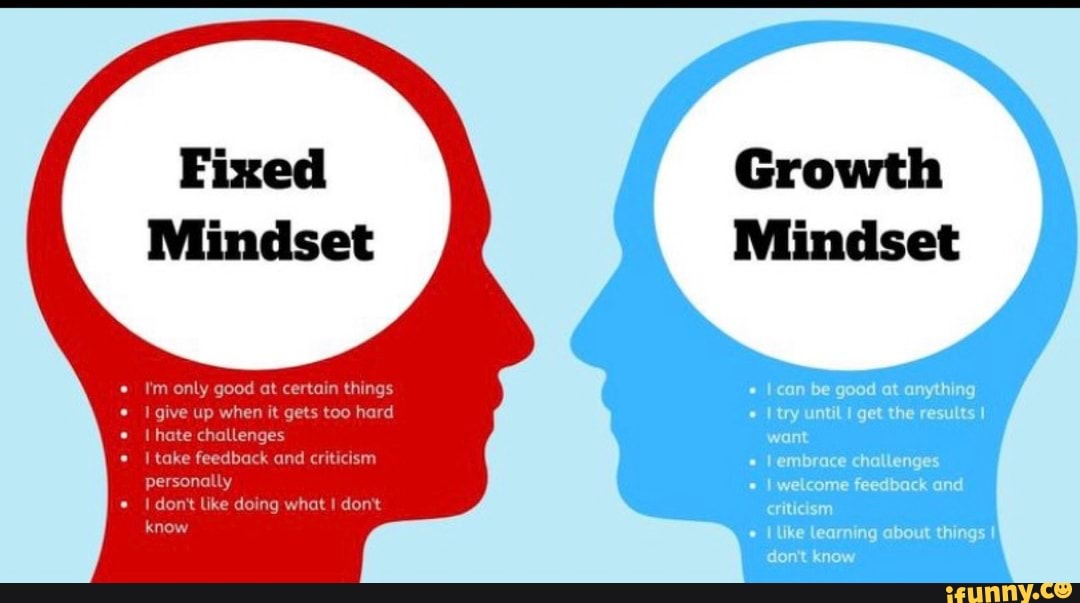Embracing a Healthy Lifestyle: The Power of Good Habits
Adopting healthy habits is crucial for maintaining motivation and productivity in one’s daily life. These habits play a significant role in shaping an individual’s routine and overall well-being. By integrating healthy practices into their lifestyle, individuals can foster a positive mindset, enhance their energy levels, and improve their focus and concentration.
Good habits encompass a wide range of practices, from maintaining a balanced diet and engaging in regular exercise to establishing a consistent sleep schedule and cultivating a positive attitude. By consciously incorporating these habits into their lives, individuals can create a strong foundation for long-term success and personal growth. This, in turn, helps to maintain motivation and productivity, as individuals are better equipped to handle the challenges and demands of their daily routines.
Moreover, healthy habits contribute to a sense of self-discipline and self-control, which are essential for achieving one’s goals and maintaining a balanced lifestyle. By consistently practicing good habits, individuals can build resilience, manage stress, and enhance their overall quality of life. Ultimately, embracing a healthy lifestyle is a powerful strategy for cultivating motivation and productivity, both in the short and long term.

Establishing a Morning Routine: Kickstarting Your Day
A consistent morning routine can significantly enhance motivation and productivity throughout the day. By establishing a set of habits that are performed each morning, individuals can create a sense of structure and predictability in their lives, which can help to reduce stress and anxiety. Furthermore, a morning routine can help to set the tone for the day, fostering a positive and proactive mindset that can enhance focus and concentration.
To create an effective morning routine, individuals should consider incorporating a few key practices. First, waking up at the same time each day can help to regulate the body’s internal clock, making it easier to fall asleep and wake up at desired times. This, in turn, can help to ensure that individuals are well-rested and alert throughout the day, which can enhance motivation and productivity.
In addition to maintaining a consistent sleep schedule, practicing mindfulness can be a powerful tool for kickstarting the day. Mindfulness practices, such as meditation or deep breathing exercises, can help to reduce stress and anxiety, improve focus and concentration, and foster a positive and proactive mindset. By taking a few moments each morning to engage in mindfulness practices, individuals can set the stage for a productive and fulfilling day.
Finally, engaging in physical activity as part of a morning routine can help to boost energy levels, improve mood, and enhance cognitive function. This, in turn, can help to enhance motivation and productivity throughout the day. Physical activity can take many forms, from a brisk walk or jog to a yoga session or a more intense workout. The key is to find an activity that is enjoyable and sustainable, and to make it a regular part of the morning routine.
In conclusion, a consistent morning routine can be a powerful tool for maintaining motivation and productivity. By incorporating practices such as maintaining a consistent sleep schedule, practicing mindfulness, and engaging in physical activity, individuals can set the stage for a productive and fulfilling day. By making these practices a regular part of their morning routine, individuals can cultivate healthy habits that will help to keep them motivated and productive in the long term.

Nourishing Your Body: The Role of a Balanced Diet
Adopting healthy habits is crucial for maintaining motivation and productivity, and one of the most important habits to cultivate is a balanced diet. Nutrition plays a significant role in cognitive function, energy levels, and overall well-being. By making mindful food choices, individuals can optimize their physical and mental performance, leading to greater success and productivity in their personal and professional lives.
Meal planning is an effective strategy for ensuring a balanced diet. By planning meals in advance, individuals can ensure that they are consuming a variety of nutrient-dense foods, including fruits, vegetables, whole grains, lean proteins, and healthy fats. Meal planning can also help to reduce the temptation to indulge in processed or fast foods, which are often high in sugar, salt, and unhealthy fats.
Incorporating fruits and vegetables into the diet is essential for maintaining optimal health and productivity. These foods are high in vitamins, minerals, and antioxidants, which can help to protect against chronic diseases, improve cognitive function, and enhance mood. Aim to consume a variety of fruits and vegetables in a range of colors, as different color groups provide different nutrients and health benefits.
Staying hydrated is also critical for maintaining motivation and productivity. Dehydration can lead to fatigue, headaches, and difficulty concentrating, all of which can negatively impact performance. Aim to drink at least eight glasses of water per day, and consider incorporating hydrating foods, such as fruits and vegetables, into your diet.
In conclusion, adopting a balanced diet is essential for maintaining motivation and productivity. By meal planning, incorporating fruits and vegetables, and staying hydrated, individuals can optimize their physical and mental performance, leading to greater success and productivity in their personal and professional lives. By making healthy nutrition a habit, individuals can cultivate a lifestyle that supports their long-term goals and well-being.

Staying Active: The Power of Exercise
Adopting healthy habits is crucial for maintaining motivation and productivity, and regular exercise is one of the most effective habits to cultivate. Exercise has numerous benefits for both physical and mental health, including improved mood, increased energy levels, and enhanced cognitive function. By incorporating physical activity into their daily routine, individuals can optimize their performance and achieve long-term success in their personal and professional lives.
There are many forms of exercise to choose from, depending on an individual’s interests, fitness level, and goals. Some popular options include yoga, running, swimming, and weightlifting. Regardless of the type of exercise, consistency is key. By committing to a regular exercise routine, individuals can build momentum and create a positive habit that supports their overall well-being.
Yoga is a low-impact form of exercise that offers numerous benefits for both the body and mind. Yoga can improve flexibility, strength, and balance, while also reducing stress and anxiety. Yoga can be practiced at home or in a studio, and there are many different styles to choose from, including Hatha, Vinyasa, and Ashtanga.
Running is a high-energy form of exercise that can be done almost anywhere. Running can improve cardiovascular health, boost energy levels, and enhance mood. Running can also be a social activity, as many communities offer running clubs and groups. For those who prefer a more low-impact form of exercise, walking is a great alternative.
Swimming is a full-body workout that can improve cardiovascular health, strength, and endurance. Swimming is also low-impact, making it an excellent option for individuals with joint pain or injuries. Swimming can be done in a pool, lake, or ocean, and there are many different strokes to choose from, including freestyle, breaststroke, and backstroke.
Weightlifting is a form of exercise that can improve strength, muscle tone, and metabolism. Weightlifting can be done at a gym or at home, and there are many different exercises to choose from, including squats, deadlifts, and bench presses. Weightlifting can also be a social activity, as many gyms offer group classes and personal training sessions.
In conclusion, regular exercise is essential for maintaining motivation and productivity. By incorporating physical activity into their daily routine, individuals can optimize their performance and achieve long-term success in their personal and professional lives. By choosing a form of exercise that aligns with their interests and fitness level, individuals can create a positive habit that supports their overall well-being. Whether it’s yoga, running, swimming, or weightlifting, there are many different options to choose from, so find what works best and commit to a regular exercise routine.

Setting Realistic Goals: The Key to Long-Term Success
Adopting healthy habits is essential for maintaining motivation and productivity, and setting realistic goals is a crucial aspect of this process. Goals provide direction, focus, and a sense of purpose, which can help individuals stay motivated and engaged in their personal and professional lives. However, setting unrealistic or unattainable goals can have the opposite effect, leading to frustration, burnout, and decreased motivation.
To set effective goals, individuals should use the SMART (Specific, Measurable, Achievable, Relevant, Time-bound) framework. This framework provides a structured approach to goal-setting, ensuring that goals are clear, actionable, and aligned with an individual’s values and priorities. By setting SMART goals, individuals can increase their chances of success and maintain their motivation and productivity over time.
Specific goals are clear, concise, and well-defined. Instead of setting a vague goal, such as “I want to get in shape,” individuals should set a specific goal, such as “I want to run a 5K race in three months.” Specific goals provide a clear target to aim for, making it easier to develop a plan of action and measure progress.
Measurable goals are quantifiable and can be tracked over time. By setting measurable goals, individuals can monitor their progress and make adjustments as needed. For example, instead of setting a goal to “write more,” individuals can set a measurable goal to “write 500 words per day.” Measurable goals provide a sense of accomplishment and motivation, as individuals can see their progress and celebrate their successes.
Achievable goals are realistic and attainable, given an individual’s current skills, resources, and circumstances. Setting achievable goals requires a realistic assessment of one’s abilities and limitations. For example, setting a goal to run a marathon without prior running experience may not be achievable in the short term. Instead, individuals should set smaller, incremental goals that build upon their existing skills and experiences.
Relevant goals are aligned with an individual’s values, priorities, and long-term objectives. Setting relevant goals requires a clear understanding of one’s goals and aspirations. For example, setting a goal to learn a new language may not be relevant for someone who has no interest in travel or international business.
Time-bound goals have a clear deadline or timeline for completion. Setting time-bound goals creates a sense of urgency and accountability, which can help individuals stay motivated and focused. For example, setting a goal to complete a project within a specific timeframe creates a sense of urgency and accountability, which can help individuals stay on track and meet their deadlines.
In conclusion, setting realistic goals is essential for maintaining motivation and productivity. By using the SMART framework, individuals can set clear, actionable, and achievable goals that align with their values and priorities. By setting specific, measurable, achievable, relevant, and time-bound goals, individuals can increase their chances of success and maintain their motivation and productivity over time. Remember, healthy habits to help keep you motivated and productive include setting realistic goals that are aligned with your values and priorities, and that provide a clear sense of direction and purpose.

Maintaining Work-Life Balance: Avoiding Burnout
Maintaining a healthy work-life balance is crucial for sustaining motivation and productivity. The demands of work and personal life can often overlap, leading to burnout and decreased productivity. By setting boundaries, prioritizing self-care, and engaging in hobbies and interests outside of work, individuals can maintain a healthy work-life balance and avoid burnout.
Setting boundaries is essential for maintaining a healthy work-life balance. This can include setting specific work hours, turning off work-related notifications during personal time, and communicating clear expectations with colleagues and supervisors. By setting boundaries, individuals can create a clear separation between work and personal life, reducing the risk of burnout and increasing overall well-being.
Prioritizing self-care is also crucial for maintaining a healthy work-life balance. This can include activities such as exercise, meditation, and getting enough sleep. By taking care of their physical and mental health, individuals can increase their energy levels, reduce stress, and improve their overall productivity. Additionally, engaging in hobbies and interests outside of work can provide a sense of fulfillment and joy, further reducing the risk of burnout.
Another important aspect of maintaining a healthy work-life balance is learning to say no. While it can be tempting to take on additional responsibilities or commitments, doing so can lead to burnout and decreased productivity. By learning to say no and prioritizing their own needs and well-being, individuals can maintain a healthy work-life balance and avoid burnout.
In conclusion, maintaining a healthy work-life balance is essential for sustaining motivation and productivity. By setting boundaries, prioritizing self-care, and engaging in hobbies and interests outside of work, individuals can avoid burnout and maintain a healthy work-life balance. Remember, healthy habits to help keep you motivated and productive include setting boundaries, prioritizing self-care, and learning to say no when necessary.

Cultivating a Growth Mindset: Embracing Challenges
Maintaining motivation and productivity requires a positive and proactive mindset. One such mindset is a growth mindset, which involves embracing challenges, learning from failures, and fostering resilience. By cultivating a growth mindset, individuals can develop the skills and mindset necessary to overcome obstacles and achieve long-term success.
Embracing challenges is a key component of a growth mindset. Rather than avoiding difficult tasks or situations, individuals with a growth mindset see challenges as opportunities for growth and learning. By taking on new challenges, individuals can expand their skillset, build confidence, and increase their motivation and productivity. Additionally, embracing challenges can foster a sense of accomplishment and satisfaction, further fueling motivation and productivity.
Learning from failures is also essential for cultivating a growth mindset. Rather than viewing failures as setbacks or defeats, individuals with a growth mindset see them as opportunities for growth and learning. By reflecting on failures and identifying areas for improvement, individuals can develop new strategies and approaches, ultimately leading to increased motivation and productivity. Furthermore, learning from failures can foster resilience and perseverance, enabling individuals to bounce back from setbacks and continue moving forward.
Fostering resilience is another critical aspect of cultivating a growth mindset. Resilience involves the ability to bounce back from setbacks, overcome obstacles, and maintain motivation and productivity in the face of adversity. By developing resilience, individuals can better navigate the ups and downs of life, ultimately achieving long-term success. Strategies for fostering resilience include practicing self-care, building a support network, and maintaining a positive attitude.
In conclusion, cultivating a growth mindset is essential for maintaining motivation and productivity. By embracing challenges, learning from failures, and fostering resilience, individuals can develop the skills and mindset necessary to overcome obstacles and achieve long-term success. Remember, healthy habits to help keep you motivated and productive include cultivating a growth mindset, embracing challenges, learning from failures, and fostering resilience.

Building a Supportive Community: The Power of Connection
Maintaining motivation and productivity is not solely an individual endeavor. In fact, social connections play a crucial role in keeping individuals motivated and productive. Building a supportive community can provide a sense of belonging, encouragement, and accountability, all of which can help individuals stay motivated and productive in the long term.
Research has shown that social connections can have a significant impact on motivation and productivity. A study published in the Journal of Personality and Social Psychology found that social support was positively associated with job satisfaction, motivation, and productivity. Additionally, a study in the Journal of Applied Psychology found that social connections can foster a sense of belonging, which can lead to increased motivation and productivity.
Building a supportive community can take many forms. One way is to join clubs or organizations related to your interests or profession. This can provide opportunities to connect with like-minded individuals, share ideas, and learn from each other. Attending networking events or conferences can also be an effective way to build a supportive community. These events provide opportunities to meet new people, learn about new trends and developments, and build professional relationships.
Participating in online forums or social media groups can also be a valuable way to build a supportive community. These platforms allow individuals to connect with others from around the world, share experiences and insights, and receive support and encouragement. Additionally, online communities can provide a sense of connection and belonging, which can be particularly important for remote workers or those who work from home.
To build a supportive community, it’s essential to be an active and engaged member. This means contributing to discussions, offering support and encouragement to others, and being open to feedback and constructive criticism. Building a supportive community takes time and effort, but the benefits can be significant. A supportive community can provide a sense of connection, encouragement, and accountability, all of which can help individuals stay motivated and productive in the long term.
In conclusion, building a supportive community is an essential component of maintaining motivation and productivity. By connecting with like-minded individuals, sharing experiences and insights, and offering support and encouragement, individuals can build a supportive community that provides a sense of connection, encouragement, and accountability. Remember, healthy habits to help keep you motivated and productive include building a supportive community, connecting with like-minded individuals, and participating in online forums or social media groups.

